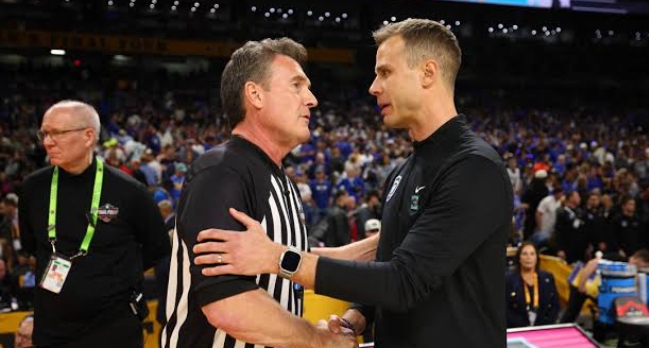NCAA Releases Final Verdict on Officiating Controversy in Duke vs. Houston Clash
Following widespread controversy and mounting public scrutiny, the NCAA has officially released its final verdict regarding the officiating in the intense Sweet 16 matchup between Duke and Houston, which ended with a narrow 70-67 win for the Cougars. The investigation was launched after multiple high-profile officiating errors were called out by analysts, coaches, and fans alike, with Duke head coach Jon Scheyer among the most vocal critics.
After a thorough review, the NCAA has confirmed that several key calls during the game were incorrect and had a direct impact on its outcome. The report identified a total of five critical officiating errors in the second half, including two questionable offensive foul calls against Duke, one missed goaltending violation by Houston, and an uncalled clear push-off during a crucial possession with under a minute remaining.
The most controversial moment came with 34 seconds left in regulation, when Duke’s Tyrese Proctor drove to the basket and appeared to absorb significant contact from Houston’s Jamal Shead. The no-call led to a fast break and eventual layup for Houston, pushing their lead to three points. The NCAA has now confirmed that the no-call was indeed a missed foul and should have resulted in two free throws for Proctor, potentially changing the course of the game.
Additionally, a missed shot-clock violation in the final two minutes allowed Houston an extra possession which led to a three-point score. The NCAA review stated that this error “constituted a critical breakdown in game management.”
In its final statement, the NCAA acknowledged the officiating crew’s mistakes, noting that “the standard of officiating fell below the expectations of NCAA tournament play.” However, it also confirmed that the result of the game will stand, as per long-standing policy that outcomes are not overturned postgame due to officiating decisions.
Coach Jon Scheyer expressed his disappointment following the release: “While we appreciate the NCAA’s transparency, it’s frustrating to see our players’ efforts impacted by errors beyond their control. We owe it to the game to be better.”
Moving forward, the NCAA has pledged to implement more rigorous review processes and training to prevent similar officiating controversies in future tournaments. The referees involved will not be assigned to officiate in the remaining rounds of the tournament.

